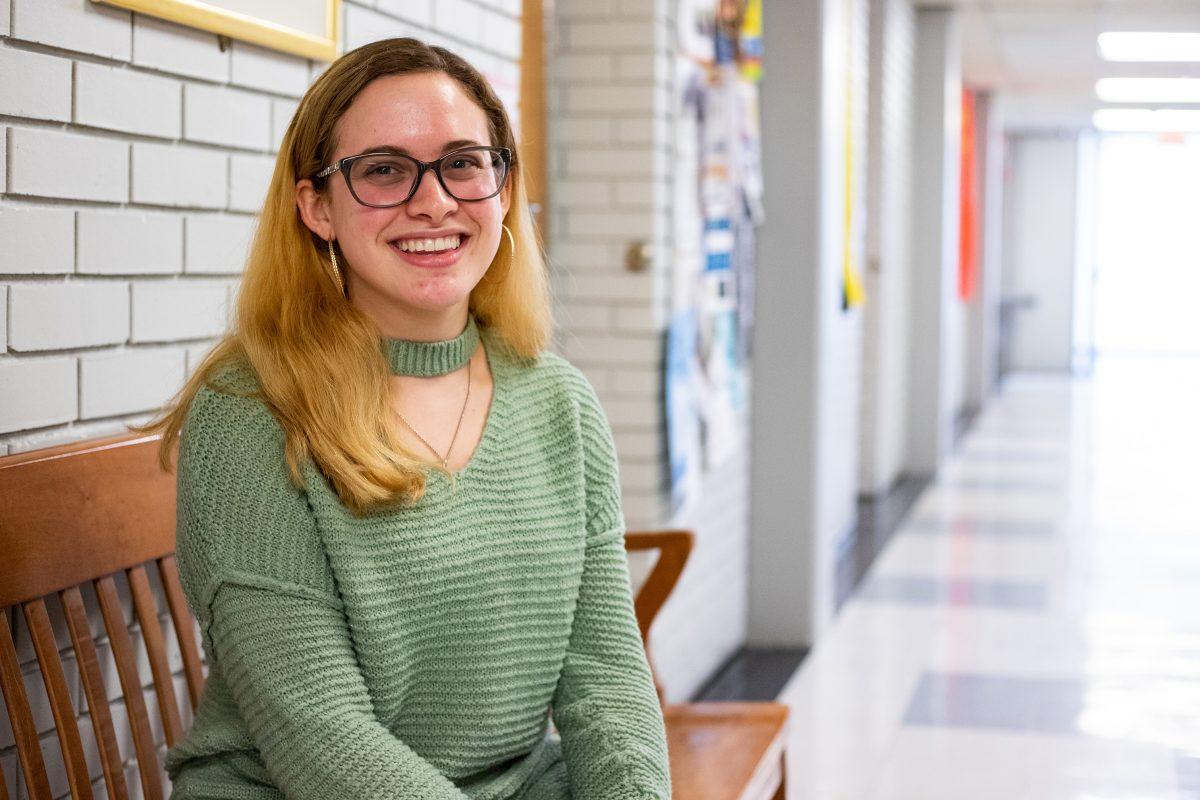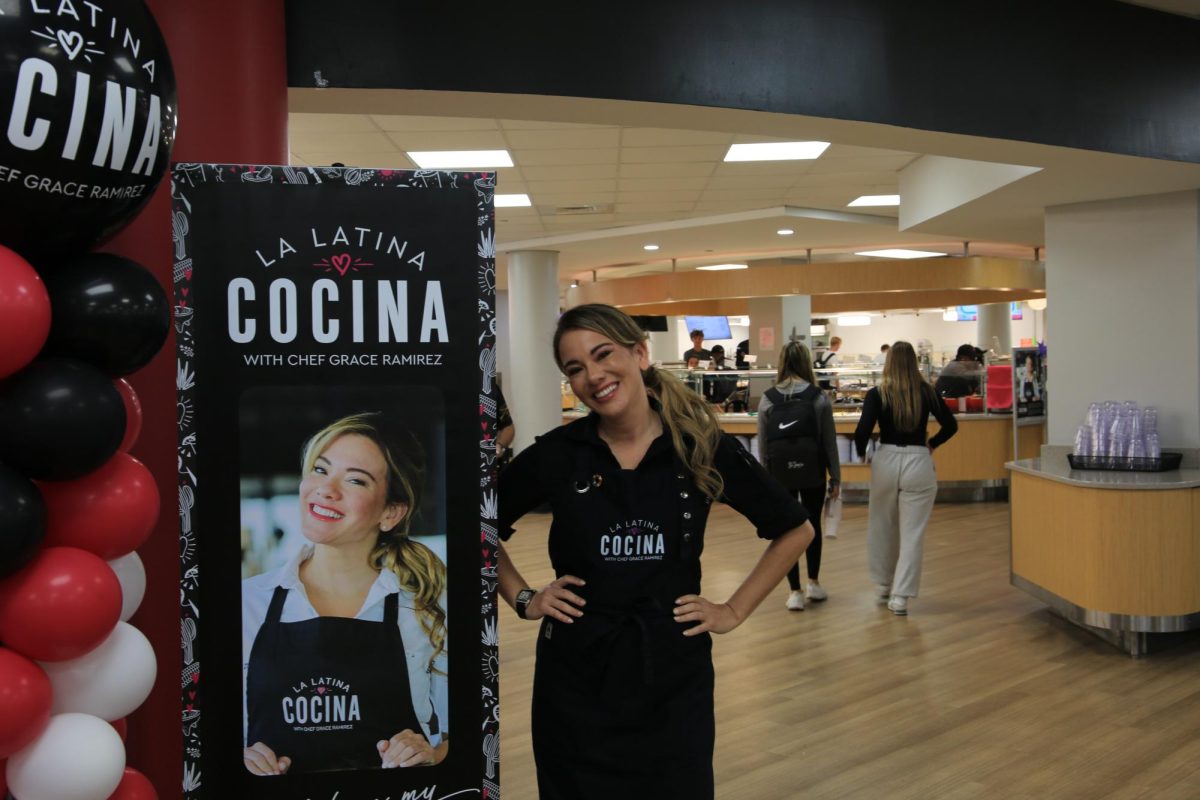Natalia Velázquez López’s adjustment to life at St. Joe’s
Natalia Velázquez López ’21 is an English major with minors in Spanish and biology. While biology is her main interest, her Spanish minor gives her a piece of home: Ponce, Puerto Rico.
Velázquez López came to St. Joe’s in fall 2017 with the intention of transferring in the spring, but she decided to stay after realizing how much she liked being on Hawk Hill.
The Hawk sat down with Velázquez López to talk about her experience on campus as a student from Puerto Rico.
What’s it like to go to school this far from home?
It’s actually not that bad, because I love Puerto Rico, but I feel like in some universities, education-wise, we’re a little behind. The university that’s really good in Puerto Rico, there are a lot of protests, and then they close the university, and I could be held back a whole year depending on how long they take. I didn’t want to risk that, so that’s another reason why I decided to come here. It really isn’t that hard unless, for example, this summer I’m staying here, so I feel like that will be hard because I go back home every long break, like Thanksgiving, spring break, winter and summer.
Did you ever feel nervous about coming to this school or to the U.S. in general?
In the beginning I didn’t feel nervous coming, because I was really excited that I could be independent, away from my parents, fully rely only on myself. But when I actually got here, after the first two or three weeks, it was really hard. I was talking to another Puerto Rican about how we were in Spark together, and she had to give a small talk to the freshmen, and she mentioned in the beginning it feels like summer camp, but then you realize no, it’s longer than a summer camp. And so after the honeymoon phase, I became really homesick, and then with the hurricane, I couldn’t communicate with my mom, so that was really hard. So in the beginning, no, but after a while, I became really homesick and I got nervous, because it was starting to affect my social and my study life.
Is the campus welcoming to people of different backgrounds?
It is, but I feel like the campus also suppresses a lot of diversity issues that it has. It promotes this image that they don’t fully fall into. In the beginning, staff wise and student life wise, I did feel welcome, but there are a lot of students at St. Joe’s who are really ignorant who do say microaggressions, whether they notice or not. I feel like that’s an issue we should address more, and it’s a conversation we should have more often. Personally, apart from microaggressions and lowkey racist comments towards Puerto Ricans, I haven’t had an issue that big. And I feel like the main reason is because I’m a white Puerto Rican. That’s another thing, if you notice all the Puerto Ricans here are white, and Puerto Ricans come in a variety of colors. We’re dark skin, light skin, medium skin. That way [the university] can say they’re diverse, when really they’re not, because we’re still white, European white. But since we’re Puerto Ricans and Latinos, they can say that they’re diverse. I just think it’s weird that they say [on the application], “What kind of Latino do you identify as?” If that’s what you’re focusing on, you’re giving me the idea that you’re just focusing on my skin color.
Do you have an example of microaggressions or smaller instances of racism like you mentioned?
Well, I mean, I’ve had conversations with people and they’re like, “What kind of latina are you [if] you can’t really tan?” For me, it’s more about questioning my culture. Another instance was when I was in Qdoba, and I mentioned I don’t like spicy food, and a girl was like, “What type of Latina are you? Aren’t you supposed to like spicy food?” And the other one was like, “Isn’t that part of your cuisine?” If you want to fall into stereotypes, that’s the stereotype of Mexican cuisine, again going back to all Latinos are Mexicans. It’s just those small things.
What is the significance of St. Joe’s not being a very diverse school?
If you put in a university a group of people who are—not everyone is ignorant to these issues and to these things—but if you take a lot of people who think the same, and they see someone who’s not the same as them, they feed off each other’s ignorance. I don’t mind getting asked certain questions, but when you word them in a way that you attack who I am and my own culture, that’s when you cross a line. I feel like if you take a group of people who are used to their own cultures and they’re not open to other cultures, again they feed into each other and they don’t want to get informed.
What do you think St. Joe’s could do to make the campus more welcoming?
For one, on the application, not asking what you identify as. I feel like that’s a start. Secondly, in classes, some way to incorporate racial issues, that way it strikes a conversation. For instance, my biology professor always finds a way to incorporate small issues that are seen on campus, and also my history professor. I feel like that’s really good because you inform your students plus relate it to the material. Also, we have these videos and then a quiz about sexual assault in the beginning of the year. Maybe put a video about examples of microaggressions and how to rephrase your question so it’s not an attack and it’s respectful. I feel like that’s critical.
What has been most memorable in your time at St. Joe’s so far?
The Latinx association has become, even though I don’t attend a lot of the meetings, it’s kind of like my Spanish minor, it’s a part of me that brings me back home and allows me to be fully who I am. Also just finding people who want to get informed or are already informed. I feel like there are a lot of minority groups that really allow me to get informed of other minorities and other racial issues apart from mine. When we all come together, it really empowers me to fight for justice. Like the talk with the Black Student Union, that really empowered me to speak more about racial issues instead of keeping quiet because it makes me uncomfortable. The Saint Joseph’s campus is welcoming, it really is, so that’s something that I greatly admire, because my transition from Puerto Rico to here would have been much harder if it wasn’t because everyone is so welcoming, especially in Wolfington.
Do you feel hopeful for St. Joe’s future?
In the beginning I did, but with the talk with the Black Student Union and the past alumni who said this has been a recurring issue, I feel like if you don’t change the administration, then there’s no hope because you’re not learning. But if you do change some people, I’m not saying everyone, the people who are repeating these mistakes, then I do think there’s hope for a more actually diverse campus.















































